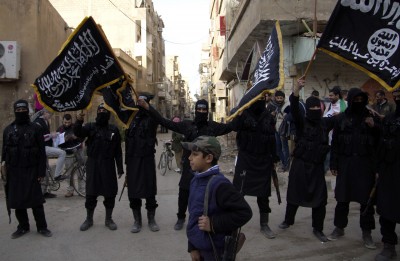Who is Behind the Islamic State in Syria? ISIS-Daesh Attempts to Torpedo the Astana Peace Negotiations

For nearly five days, the Islamic State terrorists have been advancing on the positions of the Syrian army in Deir Ezzor in the west of Syria.
Yesterday, terrorists surrounded the nearby air base which is the government troops’ last stronghold in north-eastern Syria. ISIS is reported to be using vehicles loaded with explosives and suicide bombers.
It is not a coincidence that the IS is conducting such a large-scale offensive on Deir Ezzor on the eve of the meeting in Kazakhstan’s capital Astana to discuss a lasting ceasfire in Syria. In case of success in Astana, the Syrian army could then concentrate on fighting ISIS, which would lead to bad consequences for the terrorists. Using a pause in the clashes between terror groups and government forces, the Islamic State decided to capture the part of the city and the air base controlled by Damascus.
Moreover, the terrorists’ interests comply with the aims of the U.S. and some Middle East countries which back the militants and oppose Syrian President Bashar al-Assad and his allies. Thus, in December, 2016 Washington deliberately halted the assault of its allies on the ISIS-controlled city of Raqqa to let ISIS set up a large-scale offensive on Palmyra and capture it.
Today, the Islamic State is trying to renew combat in Syria. The terrorists may even start cooperating with radical groups which won’t participate in the negotiations, Jabhat Fateh al-Sham, for example. Further provocations to prevent the meeting in Astana may also take place.
Despite this, the cooperation between the negotiation’s participants is becoming closer. Yesterday, Turkish Foreign Minister Mevlut Cavusoglu said that Ankara, being a guarantor of the peace process along with Russia, has helped lay the groundwork for the negotiations between the Syrian government and the armed opposition. The armed opposition will be represented by those leaders of the armed groups who have agreed to join the truce.Thanks to this, the two sides can discuss the issues of a broader ceasefire agreement, improving the humanitarian situation and a long-term political settlement.
The Astana meeting, unlike the failed Geneva negotiations, could foster a long-awaited peace in Syria, no matter how ISIS and Western and Middle East countries eager for war attempt to impede the process.

